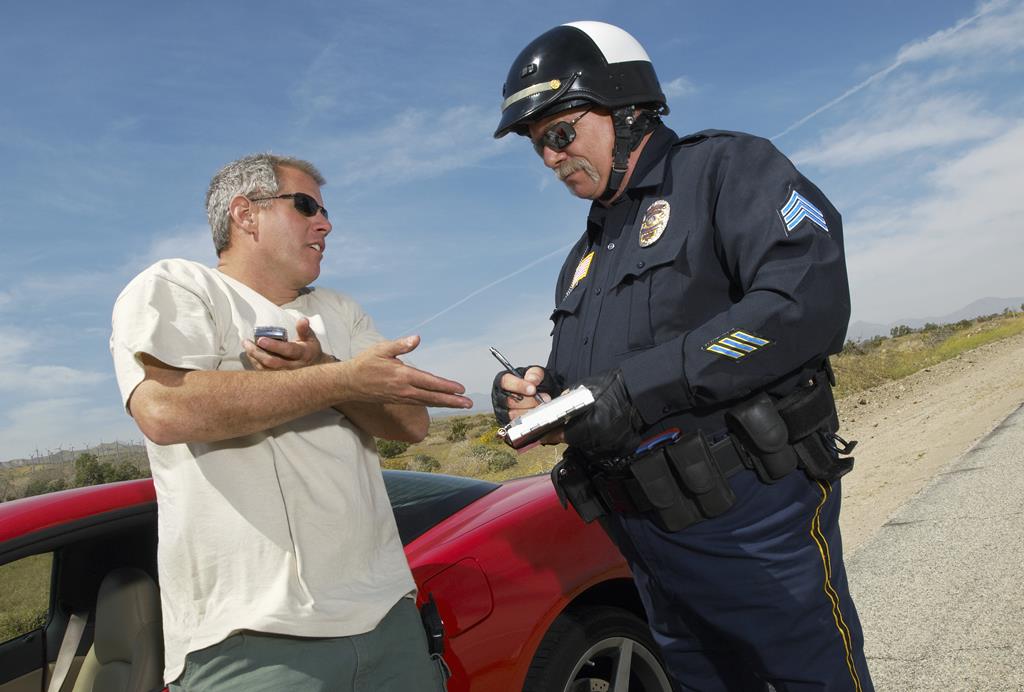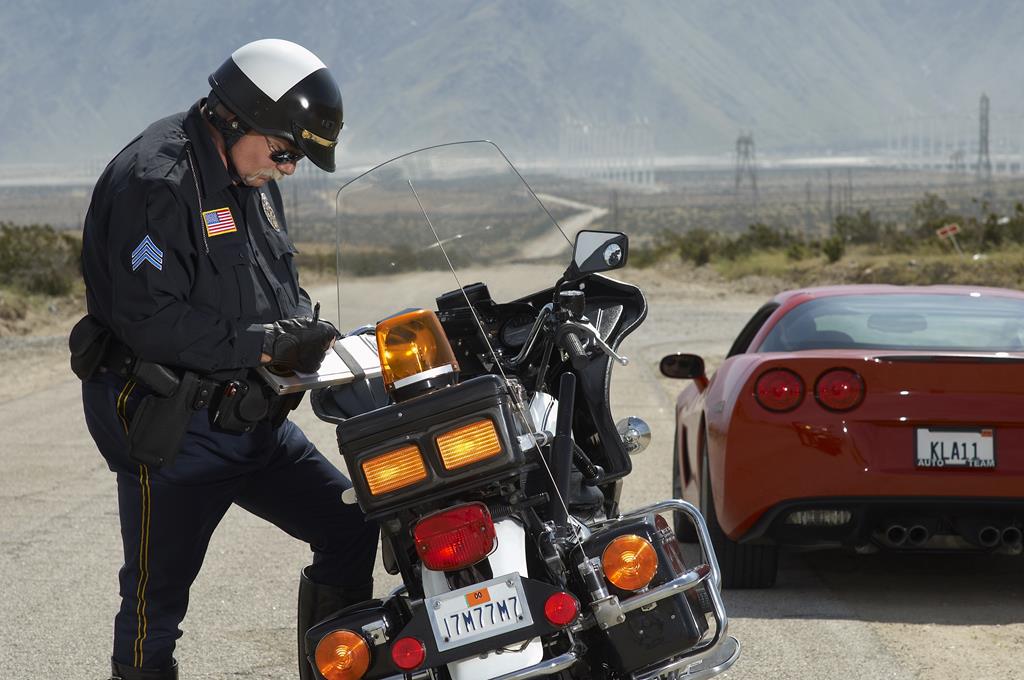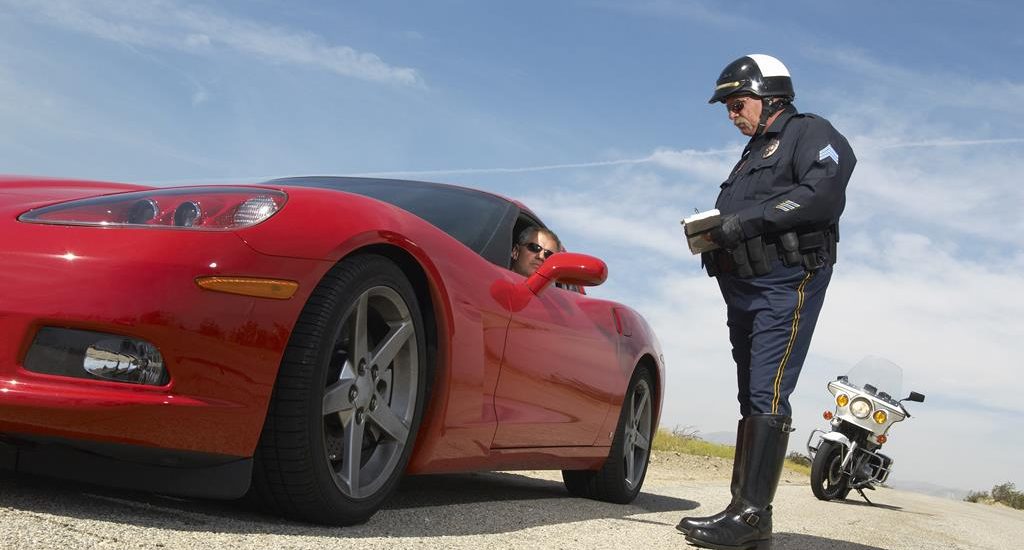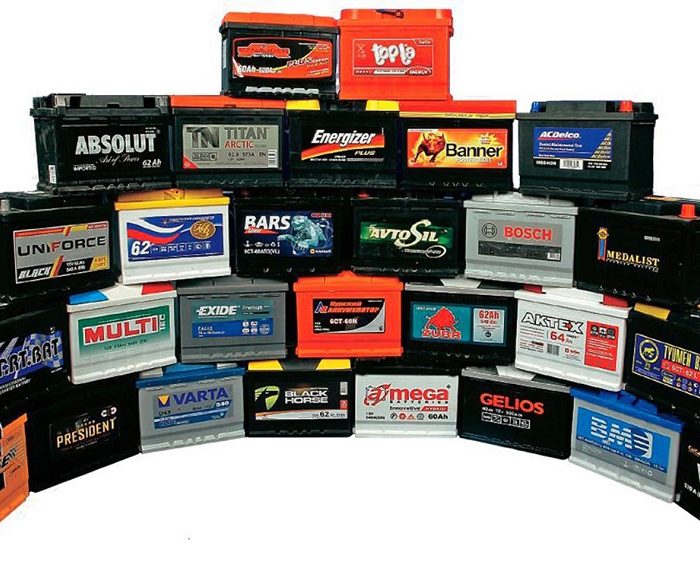Stay Calm and Composed
If you drive a car abroad and have been stopped by the police — do not panic. Despite it not being a psychologically pleasant situation, not only when abroad, but also at home, you should not lose your presence of mind.
There are several rules that must be met in such situations. The right behavior will help you get out of problems and even assure a policeman that you’re in full compliance with the law.
First of all keep your hands on the steering wheel and stay in your car until asked to get out. If you decide to leave a car, most likely the policeman will simply ask you to get back inside. The engine must be turned off as soon as you have pulled over.
Please remember that police officers abroad are usually polite, relaxed and even light-hearted. But this is only at first glance. Every movement is thought out and executed by the police strictly according to rules. For example, when a police officer reaches your car, he will first touch the back of its trunk. This way he leaves his fingerprints, so he can be identified if something happens to him.

Next the policeman approaches the rear window of your car and looks at the hands of the people who are inside. Passengers at the rear should put their hands on the front seats, and the driver should keep their hands on the steering wheel. This way you demonstrate the lack of weapons.
If everything is fine, the policeman approaches the driver’s door. However, if the driver’s hands are not visible, the police officer will remain a little behind, and will ready his weapon to use it at any time.
If the driver’s hands are visible, the policeman will check your documents and, if traffic rules are violated, you will either be warned or a ticket will be issued. In case of serious violations, the driver or passengers could even end up in jail. You need to keep your hands on the steering wheel while the police officer checks your documents and your car via his radio. Behave calmly; look at the policeman when he speaks directly to you. Your equanimity will definitely be appreciated.
Compliance with Local Laws
Remember that citizens and noncitizens fall under the same scope of local legislation, so everybody must comply with legal norms established in a local area. The violation of traffic rules, same as the violation of any other law, can lead to unpleasant consequences, namely, difficulty with obtaining visas and subsequent entry into a territory of the current state.
Therefore, if you have committed a certain violation of traffic rules, your driver’s license might be seized, same as your international driver’s permit.
What can be the reason for seizing a driver’s license? And what if this happens to you abroad?
Reasons for License Seizure Abroad
In accordance to the Vienna Convention on Road Traffic, there is no difference between citizens of a country and foreigners. According to that, the seizure of your license could be done as a result of the most serious violations of traffic rules:
a) Driving in a state of alcohol or drug intoxication;
b) Driver’s renouncement of an examination for alcohol or drug intoxication;
c) Violation of a speed limit of more than 60 km/h;
d) Leaving the scene of an accident.
As already mentioned above, punishment for violators who are citizens is the same for foreigners. Their license could be revoked for a period of about one month to a couple of years, depending on the existing legislation in the country. In addition to a direct punishment and the seizing of a license, the police will notify the violator’s state and also send a notice to the violator’s place of residence. That is why, upon returning home, it will not be possible to claim a seized license as a lost one.
However, in any case you should know your rights and be familiar with an exact procedure of seizing a driver’s license abroad.
Your Rights and License Seizure Procedure
It is better to remember a few basic points:
1. A police officer cannot independently decide whether or not to seize your license. He must send your case to a court, where the final decision will be made.
2. In the case of your driver’s license being seized, you can try to reinstate it at the place of your main residence, for which you will need to prepare a petition. As a result, your case will be referred to your local traffic police and local court. Moreover, there is no need to wait for a court session in the country of the violation; you can apply earlier. Also, it is better to be present at a local court to be able to argue for your own defense, otherwise the probability of negative consequences is much higher.
3. If the driver’s license has been revoked abroad, you have the full right to get a copy of the protocol in your native language.
4. If you do not agree with a court’s decision, it must be stated and reflected in a protocol.

Avoid Bribery
Remember that police officers abroad do not accept bribes. Any attempt to bribe or to hush up the case will turn into a very serious problem for you.
Thank you for reading, and don’t forget to obtain an international driving license when going to drive across the globe. Our IDL will help you to avoid any panic and talk to local police confidently.

Published May 03, 2017 • 4m to read





